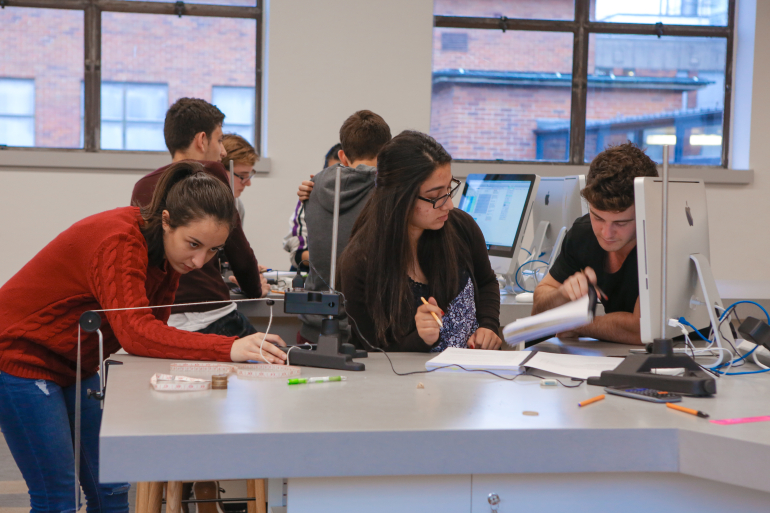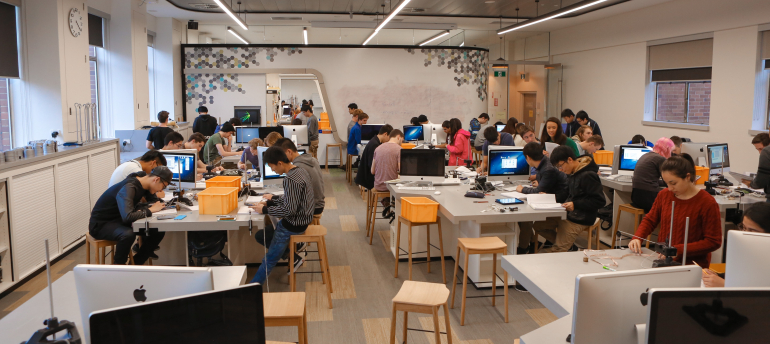By Professor Elizabeth Angstmann, UNSW Science
Published 23 March 2023
As educators we want our students to appreciate the challenge and beauty of the topics and ways of thinking that we are trying to teach them. However, students have been trained to use grades as a way to judge what is important in our courses and their level of understanding. This heuristic is prevalent, in part, as it is reinforced through secondary education. In Australia most students enter into university through their ATAR, their Australian Tertiary Admission Rank. Viewing educational success only via grades can be an impediment to deeper understanding and learning. We know that a fixed mindset, where students believe that grades measure how smart they are, gets in the way of learning and growth (1).
We also know that grades in first year physics are predominantly a measure of privilege (2). Students who enter university well prepared by good high school teachers, and who consequently scored well in HSC physics and mathematics, obtain higher grades in our courses and at similar courses in other institutes. I would be shocked if this were not the case in other disciplines. As first year educators, we need to be asking ourselves: is this what we should be doing? Under existing systems, the well-prepared students are receiving the perceived reward of higher grades, whilst expending significantly less effort than other students. With students’ focus on WAMs (Weighted Average Marks), this perceived reward has an impact throughout their tertiary studies. Is a better use of first year to get all students to the educational level that they need to succeed in their higher year studies?
By not grading first year physics, student attention can be moved onto obtaining mastery rather than marks. In my courses I want students to be able to solve problems quickly and accurately – this will ensure they are not cognitively overloaded when they build on these ideas in higher years. I also want them to appreciate that physics is an experimental science.
With this in mind, I have set three assessments that they must pass in order to pass the course. Two challenging, automatically marked, online tests that are invigilated in our first year physics lab with a requirement that they pass seven of eight laboratory exercises. It is well known (3) that the most effective study techniques are distributed practice, that is answering questions throughout the term, and practice testing – taking practice tests before the real one. This fed into the design of our assessment. Students have weekly quizzes, not for marks, that pull from the same question bank as the test but give detailed written feedback if a student makes a mistake. Students also have access to a practice test that they can take as many times as they want before the actual tests.
University is about learning, if a student does not pass the test the first time, they can attempt it another couple of times after having time to revise and learn the material. Our course is well resourced with online learning material and practice tests, in order to make this possible.
One criticism that is sometimes levelled at non-graded courses is that it “drops the standard”. I would argue that in fact the opposite is true. With hurdle tasks that students have to pass, they are given the opportunity to learn from their mistakes and reattempt these. But a student who has not mastered all the material in the course will not pass. This is not true of most graded courses where deficiencies in one part of the course can be compensated for by good performance in other parts. For example, I know that in my courses most students score well in the laboratory part of the course and previously used this to compensate for a poor exam mark.
As an additional benefit, the removal of grades has led to behavioural changes. I have noticed that students are much more willing to help each other, and hence build a stronger supportive cohort once grades are removed. They no longer see their peers as competitors but rather useful study companions.
I must also admit that marking is my least favourite part of the job. While theoretically I know that I can learn about what students don’t know by reading over their exam scripts, I have found this less useful than open and frank conversations with students about what they are struggling with in the course. Personally, I am also going to enjoy some time off during and immediately after the exam period and I am certain that my students will thank me for this as well (in fact some already have!).
***
Reading this on a mobile? Scroll down to learn about the author.
References
- (1) Fernandez, O. E. (2021). Second chance grading: An equitable, meaningful, and easy-to-implement grading system that synergizes the research on testing for learning, mastery grading, and growth mindsets. Primus, 31(8), 855-868.
- (2) Salehi, S., Burkholder, E., Lepage, G. P., Pollock, S., & Wieman, C. (2019). Demographic gaps or preparation gaps?: The large impact of incoming preparation on performance of students in introductory physics. Physical Review Physics Education Research, 15(2), 020114.
- (3) Dunlosky, J., Rawson, K. A., Marsh, E. J., Nathan, M. J., & Willingham, D. T. (2013). Improving students’ learning with effective learning techniques: Promising directions from cognitive and educational psychology. Psychological Science in the Public interest, 14(1), 4-58.
The UNSW Scientia Education Academy (SEA) recognises our most outstanding educators for their leadership and contributions to enriching education, and gives them a platform to showcase and facilitate excellence in teaching at UNSW and beyond. Learn more about UNSW Scientia Education Academy here.


